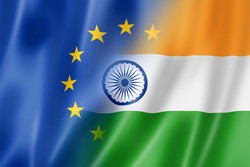EU-India efforts for a sustainable bio-based economy
Gathering key actors from the EU and India and actively promoting knowledge exchange will go a long way towards building a sustainable bioeconomy, the so-called knowledge-based bioeconomy (KBBE). With this in mind, the EU-funded SAHYOG(opens in new window) (Strengthening networking on biomass research and biowaste conversion – Biotechnology for Europe India integration) project brought together leading organisations in biomass production and biowaste conversion that conduct research through EU initiatives and Indian national institutions. The first 12 months of the 3-year project were primarily focused on developing 2 in-depth inventories of biomass and biowaste to identify common areas of interest, knowledge gaps and cooperation opportunities in Europe and India. One inventory provides an overview of 924 research projects and programmes in the EU and 280 in India. The other presents a detailed regional analysis of data on biomass production and availability from forestry, agriculture and waste in Europe and India. Using the inventories as a basis, a joint Strategic Research Agenda was drawn up that lays down a shared vision for the EU and India on the latest bio-based economy developments and research needs. This led to a roadmap for EU-India collaboration on future research and development aimed at policymakers and researchers. Both strategic documents were compiled with substantial feedback from various key stakeholders. Two summer schools for European and Indian students were held in Greece and India. Renowned international experts gave lectures and presented the latest developments in their domains. A workshop brought together coordinators of current EU and Indian initiatives to engage in project twinning. Short-term programmes to enhance the networking and exchange of young researchers and to establish sustainable cooperation between the EU and India were implemented via two joint calls for proposals. Collaborative EU-India activities through SAHYOG should enable the implementation of more effective and efficient research, thus facilitating the transition to a KBBE.



